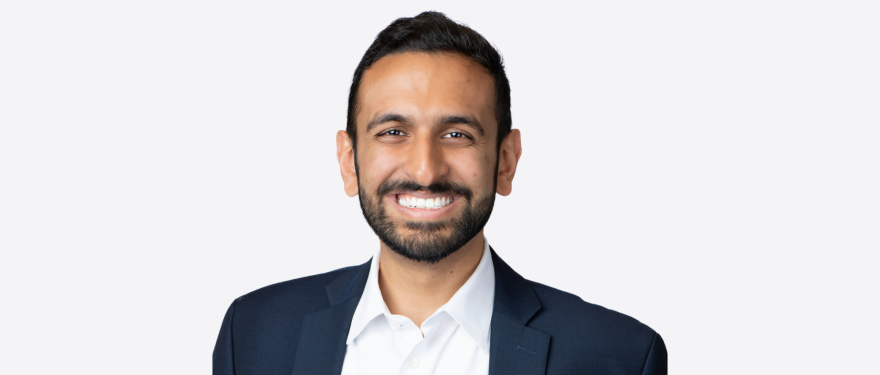In 2021, after working in big tech for just over four years, I felt an itch to try something new. I was seeing friends around me leave their more established jobs to pursue exciting opportunities as early employees in startups. Many of them were motivated by the renowned investor Marc Andreessen’s recent essay, titled “It’s Time to Build.” In it, Andreessen discussed how the COVID-19 pandemic exposed gaping institutional voids in society that technology had the potential to address – so long as there were people willing to build it. The prospect of that idea excited me. While the MBA seemed generally applicable, I also hoped to stay technical where possible, especially in 2021 amid the changing environment for AI and Web3. A conversation with a friend and mentor Emily Batt (MS/MBA 2020) convinced me that Harvard’s MS/MBA was the right fit for me. You get to learn some of the fundamentals of what it takes to build a company alongside a cohort of 30 other technically minded individuals (a subset of the broader HBS class), then use the program as a launchpad for joining a startup or maybe launching something yourself. Plus, you end up with two degrees (an MBA and an MS), all in two years. I eagerly applied and was fortunate to be accepted.
The program has exceeded my expectations. First, you gain a more intimate academic experience as part of a 30-person class while still being fully integrated into the broader MBA class during your first year - section experience, required curriculum, and all. The smaller program means you get more resources from the school, including direct access to top founders and investors in the industry. And the curriculum is very hands-on and practical, as every joint-degree class is focused on designing or building from 0 to 1 to produce something tangible.
Second, I cannot emphasize the power of the community enough! The first-year curriculum ensures you have some academic experiences unique to the MS/MBA cohort: starting classes a month early for Design Theory and Practice (DTP) and coming back to Boston during the cold of January for Technology Venture Immersion. Much of the broader HBS experience is based upon the conversations you’ll have with peers. Whether classroom discussions or project collaboration, you end up getting to know this group of 30 peers incredibly well. DTP is particularly valuable for giving you a group of familiar faces before the flood of new introductions come September when the broader MBA cohort begins at HBS. The community also extends well beyond the two years. With only six cohorts thus far, each of 20-30 people, the alumni base is nascent but growing. Tomer and Yarden (MS/MBA 2022) have done a great job of keeping the community cohesive by forming the Builders Club. This forum has unlocked the unique power of the MS/MBA community, as we’re now able to collectively learn and grow as we share founder best practices, career guidance, and more.
Finally, the signaling power of the MS/MBA is strong and effective. This program opens doors, even beyond the MBA in some cases. The MS/MBA conveys that you can hit the ground running and contribute to the challenging problems at hand, regardless of previous experience. This was true during my summer internship search. Inspired by the program’s balance of software and tough tech (e.g. robotics, space, biotech), I decided to shift away from software this summer and try tough tech for myself. I ended up being very fortunate to receive a few options, which I likely wouldn’t have had if not for the dual degree. In some cases, the companies carved out a product manager or adjacent role for me to step into. I ended up joining Starlink at SpaceX, where I had a terrific summer working on the Growth team in LA - and even overlapped with alum and now SpaceX employee Kate Sweeney (MS/MBA 2023).
Going back to the time to build: graduate school is not always the first call to action for an entrepreneur. However, it is very compelling to see an institution like Harvard put its weight behind a program that equips young people to transform our society through technology. Personally, I hope to spend my time after HBS tackling problems that are technically challenging and impactful, whether in AI, space, or climate. I am very grateful to have spent two years in the MS/MBA for the skills I’ve learned and the people I’ve met. The 30 friends from my MS/MBA cohort will be a sounding board for the rest of my career – and I can’t wait to see what we build together.

